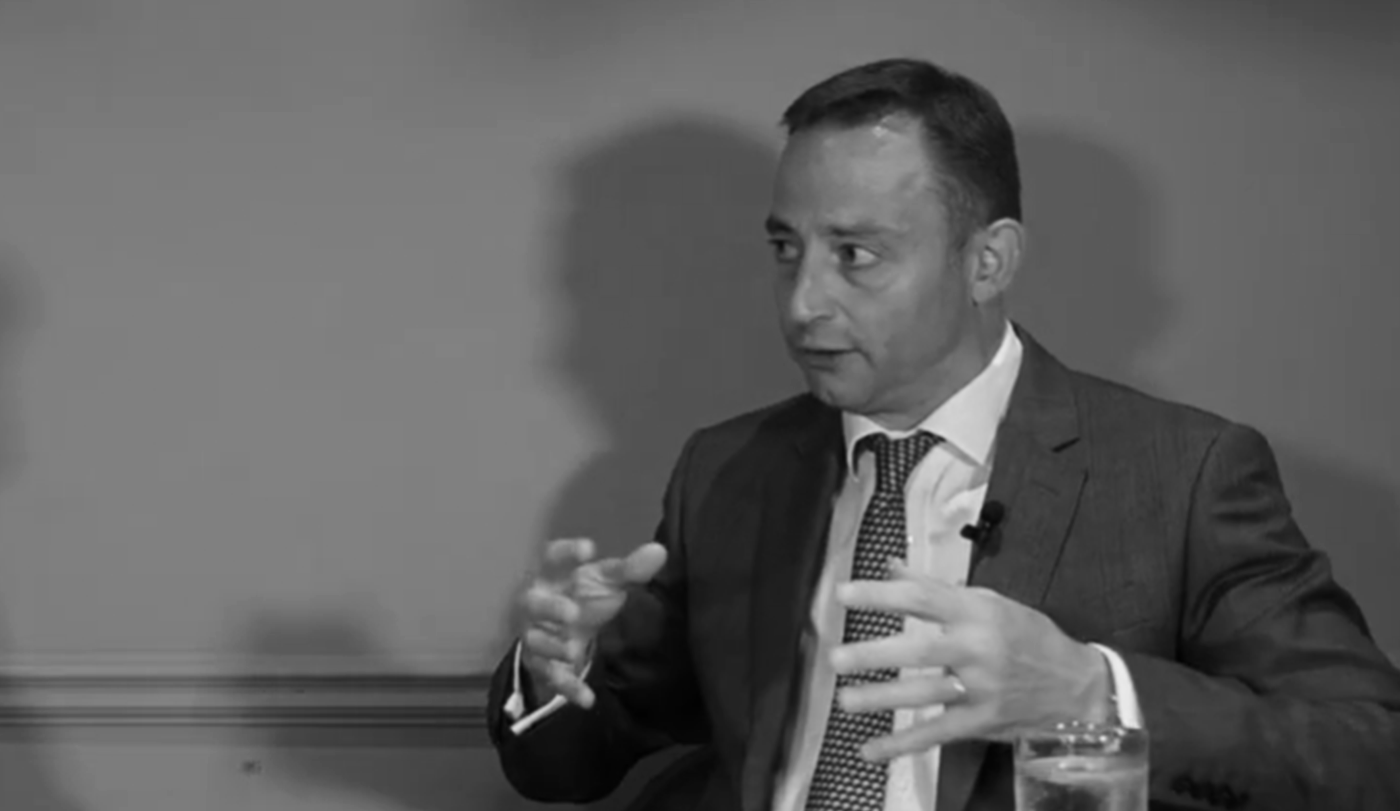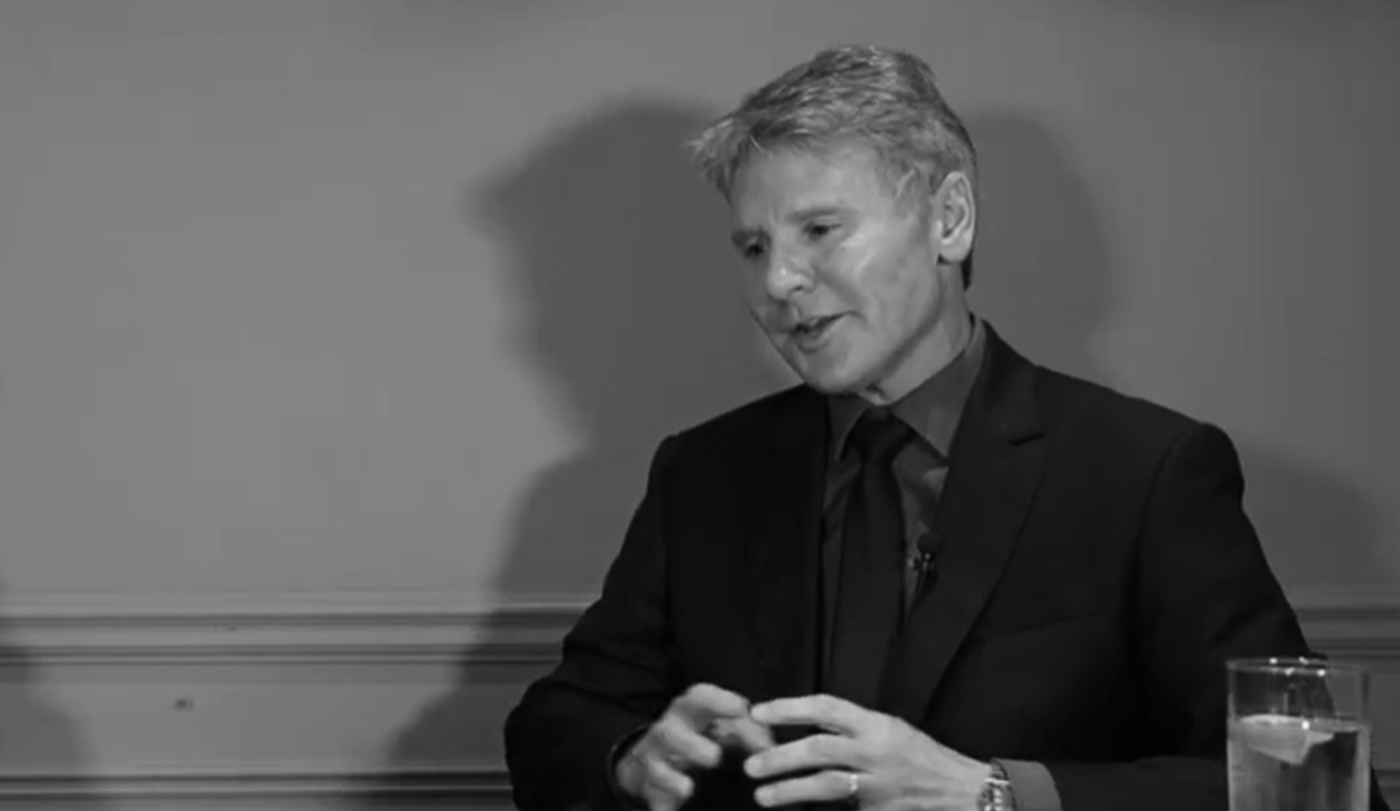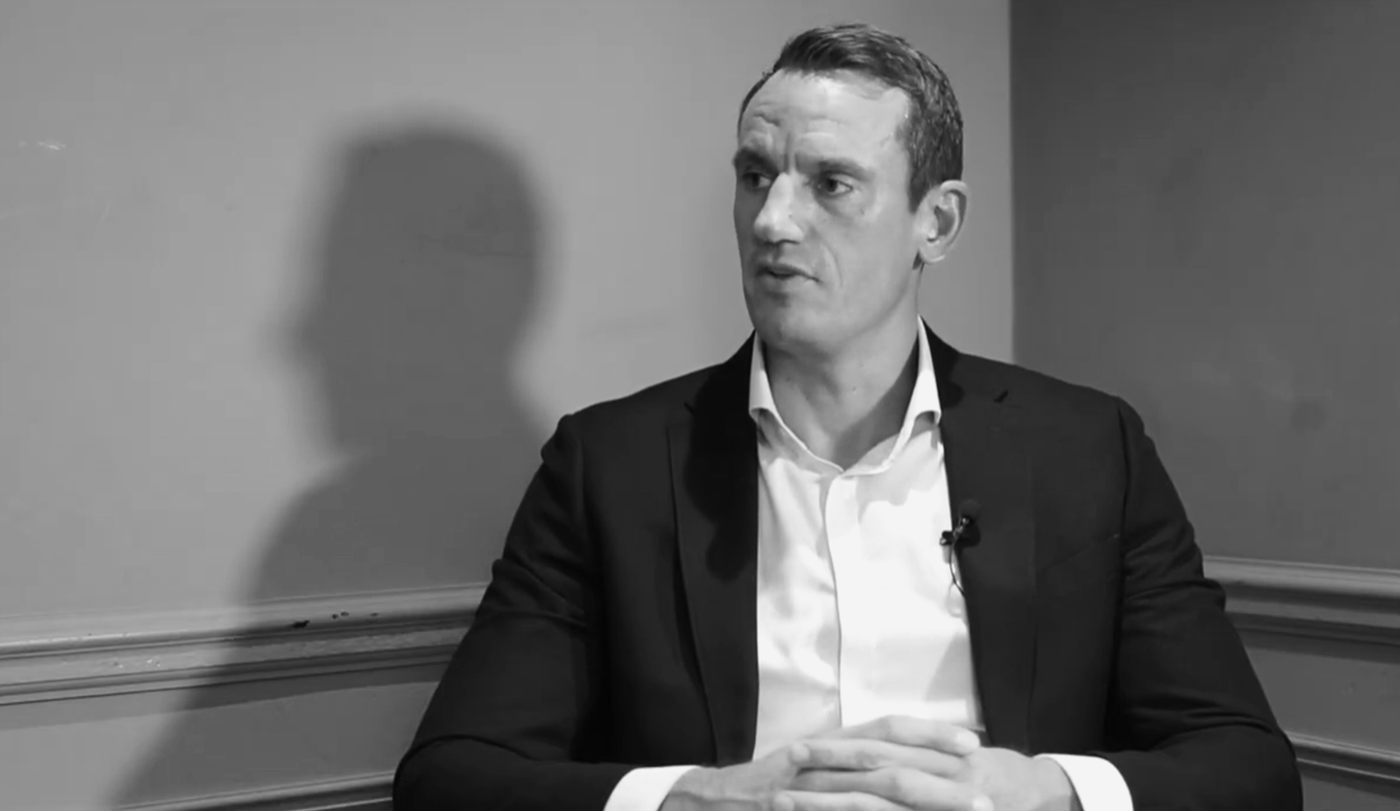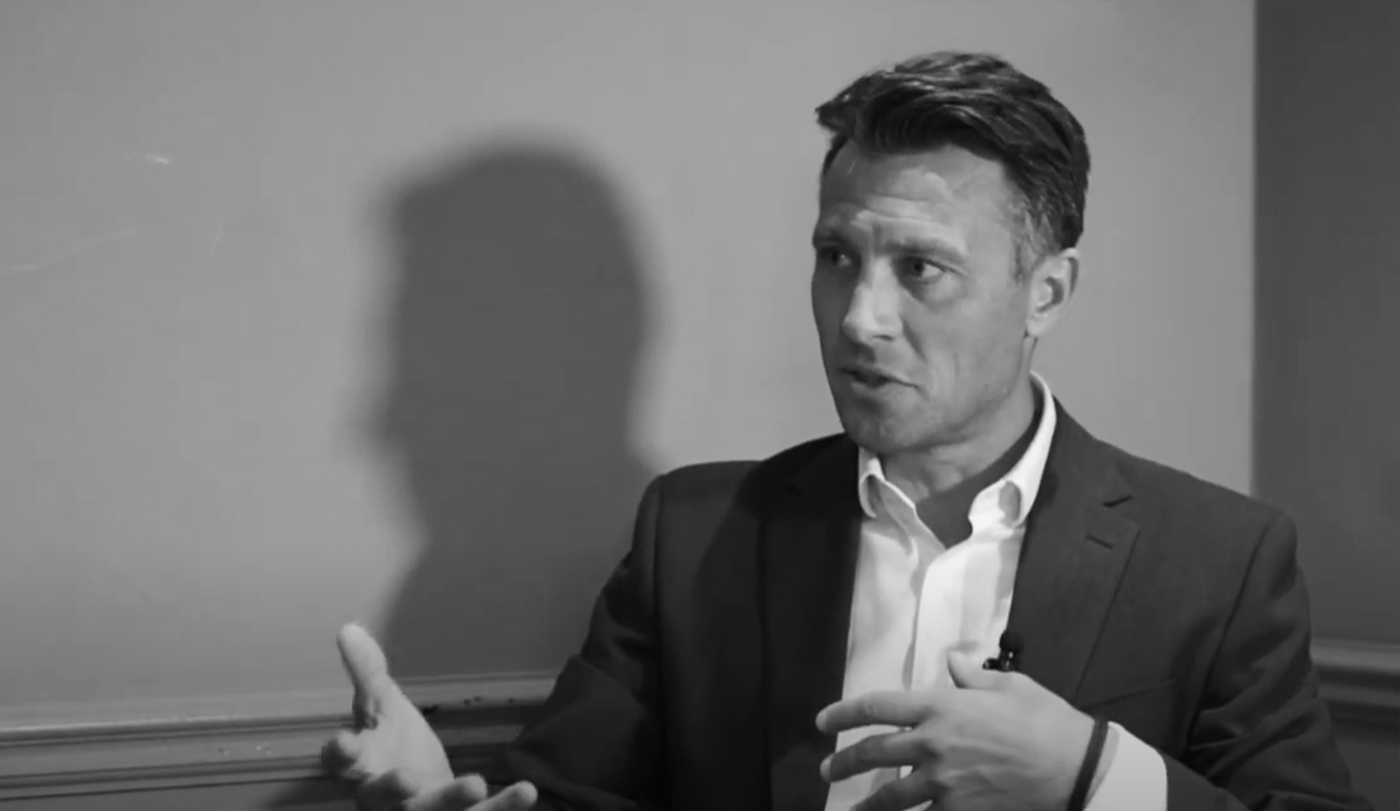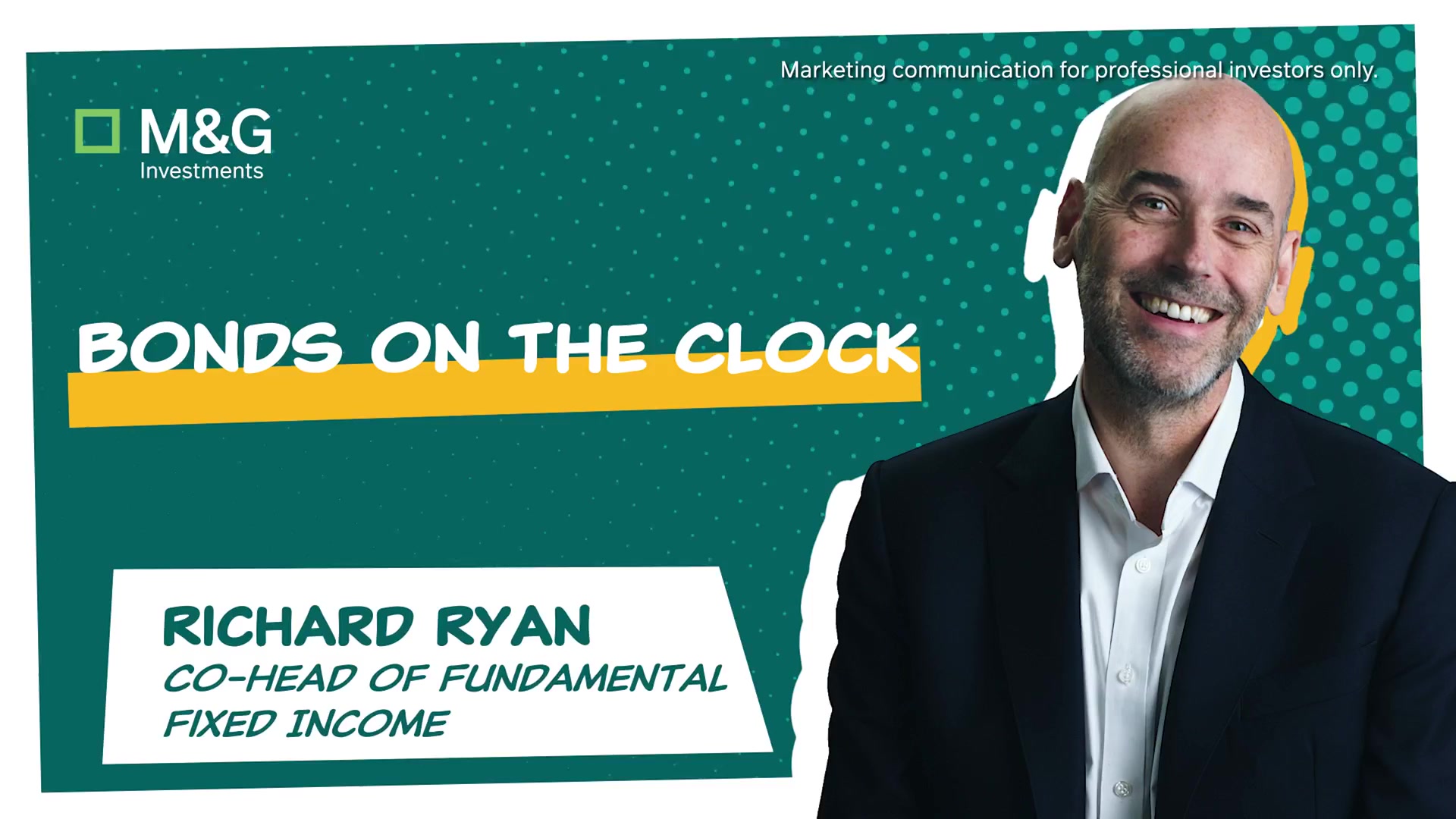On macro themes, cognitive diversity and improving wealth outcomes
In our regular video series, we interview the wealth sector’s key decision-makers to discover how they think about life, both within the world of investment and beyond it; what brought them into the business and what keeps them here; and what makes them and their companies tick
It was as an intern at Lehman Brothers almost 20 years ago that Tessa Mann, head of macro and multi-asset strategy at WTW, had her first taste of how pivotal events, policy and economics can shape markets and the broader world – and these “big, macro, top-down themes”, and how they intersect with pricing, continue to inform her investment approach today.
“In terms of individual assets, I am always going to be thinking top-down,” she tells Wealthwise editorial director Julian Marr in our latest Choice Words episode above (and, for the second – and hopefully last – time in a row, we do apologise for the technical glitch that means this is only available as a sound recording).
“What are those big themes that are driving economies and markets? That is the starting place – looking along the horizon at whether we are going to have a higher-inflation regime, a lower-growth regime, perhaps more uncertainty.
“And then, obviously, pricing is key – where are there going to be constructive drivers to increase or perhaps decrease prices? One great example of that has been Japanese equities, where there are still lots of constructive drivers. We know big companies in Japan used to be very cautious and were sitting on very high cash balances for a long time but, since the late 1990s, there has been a pivotal shift.”
For equity markets, we know artificial intelligence has been a big market driver but I see this as a really transformational shift.”
Asked what most interests her about the current investment outlook – and what most worries her – Mann starts with the latter. “Obviously, we have a big change in geopolitics happening and the main thing that impacts, from my perspective, is uncertainty. Markets don’t like uncertainty, businesses don’t like uncertainty and neither do consumers. Yes, some of that uncertainty has been pared back – but, still, it is a big geopolitical shift we are seeing at the moment in global trade.
“As for what interests me – for equity markets, we know artificial intelligence has been a big market driver but I see this as a really transformational shift. If we look at AI, we have ChatGPT and other large language models that we are all quite used to – those grab the headlines – and we have seen very big companies that are able to build software, data-centres and microchips really leading.
“Looking forward, though, those companies that are better able to adopt new technologies are going to really outperform – in particular, any kind of business model or sector where you have a very high cognitive load, lots of unstructured data and repeatable processes. Essentially, we will see an economic rotation and transformation of some of these new technologies, which will impact markets in a big way over the coming years.”
Convergence of approaches
Later on, the conversation turns to how wealth managers can best attract the next generation of talent? “We know from multiple studies that a diversity of thought can really improve investment outcomes,” says Mann. “So we really need to be searching out that cognitive diversity, which means different backgrounds but also different ways of thinking – maybe not only looking for one degree type but really being able to focus on that diversity of thought.
“And then it is so important that people feel attached to their own career and that they are able to have an influence on their own direction – and making an impact is increasingly important for young people coming through today.” As for the broader outlook for wealth management in the UK, Mann highlights “an interesting evolution” taking place at her employer.
“I am excited to see the convergence of more ‘traditional’ wealth management – that personal, tailored approach – with some of that institutional mindset,” she continues. “That is the lens we are bringing into the wealth space – so, for example, when we have looked at some traditional portfolios, you may see higher volatility. That might be down to a high reliance on traditional equity and traditional credit, which can be two sides of the same coin.
“Whereas, with portfolios that have perhaps more niche credit, perhaps some insurance-linked securities, you are getting your return drivers paying off at different times. That is really important in a wealth context – particularly for individuals who may be drawing capital down soon, retiring soon, that type of thing. So trying to have that consistency of portfolio outcomes and reducing some of that volatility is just one area where bringing that more institutional way of thinking will improve wealth outcomes.”
Our apologies, again, that the intervention of technical gremlins has meant this episode is available only as a sound recording. A full transcript can be found after this box while you can listen to the whole episode by clicking on the picture above. To jump to a specific question, just click on the relevant timecode:
00.00: What excites you about the current investment outlook? What worries you?
02.32: What do you most look for in an individual investment? What constitute ‘red flags’?
04.59: What was your path into investment – and, if you had not taken it, what do you think you would be doing now?
06.02: What is the biggest investment mistake you are prepared to admit to – and what did you learn from it?
07.20: How can wealth managers best attract the next generation of talent?
08.26: What most excites you about the outlook for wealth management in the UK?
09.56: Outside of work, what is the strangest thing you have ever seen or done?
10.57: Two ‘Choice Words’ recommendations, please – one a book; one a free choice?
Transcript of ‘Choice Words’ Episode 16:
Tessa Mann, with Julian Marr
JM: Well, hello and welcome to another in our series of ‘Choice Words’ videos where we get to meet the great and the good of UK fund selection and UK fund research and find out what makes them tick. I am Julian Marr, editorial director of Wealthwise, and today I am delighted to be talking to Tessa Mann, head of macro and multi-asset strategy at WTW. Hello Tessa.
TM: Hello and good morning.
JM: Jumping straight into the first question, what most excites you about the current investment outlook? What gives you pause for thought?
TM: Well, that is certainly an interesting question in today’s world! Maybe if I start with the second part first as it is kind of the big elephant in the room. Obviously, we have a big change in geopolitics happening at the moment and the main thing that impacts, from my perspective, is uncertainty.
Markets don’t like uncertainty, as we know. Businesses don’t like uncertainty – and neither do consumers. So in terms of the outlook from here, that is really what gives me some concern. Obviously, we have had some paring back of some of that uncertainty – but, still, it is a big geopolitical shift we are seeing at the moment in global trade.
In terms of what interests me in the outlook – for equity markets, we know artificial intelligence has been a big market theme, a big market driver. I see this as a really transformational shift. So, if we look at AI, we have ChatGPT and other large language models that we are all quite used to – those would grab the headlines – and we have seen very big companies that are able to build software, data-centres and microchips really leading.
Looking forward, though, those companies that are better able to adopt new technologies are going to really outperform. So I think it is going to be an exciting time – you know, in the workplace, but also in the investment landscape.
In particular, there, I am just thinking any kind of business model or sector where you have a very high cognitive load, lots of unstructured data and repeatable processes. So, essentially, I think we will see an economic rotation and transformation of some of these new technologies, which will impact markets in a big way over the coming years.
Pricing is key
JM: That is a great start – thank you for setting that up. Drilling now into the micro, what do you most look for in individual investments and what constitutes a red flag for you?
TM: Great question! In terms of individual investments, I am always going to be thinking top-down – what are those big themes that are driving economies and markets? So that’s the starting place – looking along the horizon – you know, are we going to have a higher-inflation regime, a lower-growth regime, perhaps more uncertainty?
So I am looking at those big thematic drivers and then, obviously, pricing is key – where are there going to be constructive drivers to increase or perhaps decrease the price? A great example of that has been Japanese equities, where there are still lots of constructive drivers. So we know big companies in Japan were very cautious and were sitting on very high cash balances for a long time but, since the late 1990s, there has been a pivotal shift.
So that is the kind of big, macro, top-down theme I will look at – and then, you know, how that intersects with pricing. We have seen some increase there and, over a longer-term horizon, that would be still where there are constructive drivers, as one example.
JM: Just to pick up on your Japan point, is that still ongoing? Is there a danger investors have missed the boat there?
TM: Good question. At the moment, we do see some weakening and softening of the fundamentals there – and that is something we would look at on a shorter-term horizon – although weakness can obviously provide more attractive pricing. So a lot of that has been priced in – but that gives an example of the type of framework as well that myself and my colleagues at WTW will look at when picking a specific investment idea.
JM: Thank you. I interrupted you, of course – red flags was the other part of the question.
TM: On red flags, my background was that I studied mathematics and philosophy so maths and quantitative methods are very important – but, then, an overreliance on historic models is a red flag to me because, necessarily, that is not going to pick up on big regime changes and that breakdown of historic relations. And, you know, the past obviously does not always predict the future.
Top-down drivers
JM: Indeed not – although, speaking of the past and the future, what was your path into investment and, in an alternative universe, if you had not taken that, what do you think you would you be doing now?
TM: I actually interned at Lehman Brothers at a very interesting time – in 2006 – so I had a very small flavour, I suppose, of kind of a financial heyday. From there, obviously, I could see some very pivotal macro events and how policy and economics shape markets and the broader world.
I started off then in risk management – in liability-driven investments – but the last kind of 10 years have been on that macro strategy, multi-asset strategy side, where I am just very passionate about those big, top-down drivers and how that translates into investments.
JM: Clearly. And so, in an alternative universe, maybe you got to stay at Lehman’s!
Portfolio resilience
JM: OK, this next question has absolutely no link to Lehman’s but what is the biggest investment mistake you are prepared to admit to and did you learn anything from it?
TM: I would say, in terms of the macro space, coming out of 2022, we had had a bad year for markets – and, you know, the set-up on a macro basis was weak. We had an inverted yield curve, weak consumer confidence in the US and generally poor indicators – and that was being combined with a tightening of monetary policy. So, examining the kind of macro leading indicators, it looked like a weak set-up.
And, actually, 2023 then became a very strong year for markets. So that goes back to a couple key points, I think – the first is around the fact there is always uncertainty in investing. That then leads to the second point of being sure you have diversification of risk drivers in a portfolio to stay resilient and robust – which we did have at that time but, you know, certainly shows that it is important to invest on multiple scenarios.
Cognitive diversity
JM: Excellent. We were looking back with the last couple of questions but let’s now look forward. One question I do not ask enough in these recordings but we should do more – and maybe we will – is, How do you think wealth managers can best attract the next generation of talent?
TM: For me, there are a few points here. We know from multiple studies that a diversity of thought really improves investment outcomes in investment committees. So I think we really need to be searching out that cognitive diversity, which means different backgrounds, but also different ways of thinking.
And maybe not only looking for one degree type but really being able to focus on that diversity of thought. And then it is really important that people feel attached to their own career and that they are able to have an influence on their direction – and making an impact is increasingly important for young people coming through today.
Tailored approach, institutional mindset
JM: Thank you. What most excites you about the outlook for wealth management in the UK?
TM: Well, within Willis Towers Watson, it has been an interesting evolution we are seeing. So I am excited to see the convergence of kind of traditional wealth management – that personal, tailored approach – with some of that institutional mindset. That is the lens we are bringing into the wealth space – so, for example, when we have looked at some traditional portfolios, you may see higher volatility. That might be down to a high reliance on traditional equity and traditional credit, which can be two sides of the same coin.
Whereas with portfolios that have perhaps more niche credit, perhaps some insurance-linked securities, you are getting your return drivers paying off at different times. That is really important in a wealth context, particularly for individuals who may be drawing capital down soon, retiring soon – that type of thing.
So trying to have that consistency of portfolio outcomes and reducing some of that volatility is just one area where I think bringing that more institutional way of thinking will improve wealth outcomes. Certainly, it is something I am personally excited about there.
Hong Kong life
JM: Very interesting. Sharp left turn now – outside of work, what is the strangest thing you have ever seen or done?
TM: Well, I have racked my brains for this one and I think some eyebrows were raised when I went to Hong Kong to live there on a kind of semi-permanent basis.
I had never actually visited Hong Kong before so I touched down and, even though you can always research a place and look into how life might be there, it is always different when you actually land there. So, yes, that was a little bit out there!
JM: I think that is a great one. First, just coming into land and flying past the skyscrapers is quite an experience – and then some of the markets actually made me think of Bladerunner! It is certainly one of the most exciting places I have visited – New York in the late 1980s, Hong Kong in the mid-1990s and then Naples, well, just any time!
Noise cancellation
JM: Good choice – speaking of which, we call this series Choice Words because you make choices professionally but now we are looking for two personal recommendations for our viewers – for our viewer! One would be book – it does not have to on investment – and one would be a free choice. It can be anything.
TM: Quite a formative book for me has been The Black Swan by Nassim Nicholas Taleb – for obvious reasons. The great financial crisis was in some of my kind of formative years and, obviously, the book is about these events that are difficult and challenging to predict. Well, impossible to predict – easy with hindsight – and a very big impact.
And it comes down to my philosophy around quantitative models being important while over-relying on them for any one particular investment is just not a great plan. And making sure, as I say, that portfolios are robust by having different drivers is one way I think that is implementable. So that book is definitely a recommendation from me.
JM: Very good – and the free hit?
TM: I am quite attached to my noise-cancelling headphones. They help me focus both in the office and outside the office – and, you know, it is always useful to reduce the noise! Bit of a pun there – though not a good one!
JM: Not at all. All puns are good – and it is important to at least attempt them! Actually, I think what we are going to do is run a Choice Words ‘Christmas List’ of all the best recommendations and that will definitely feature! Tessa, great Choice Word choices, and great to talk to you today. Thank you so much for coming along.
TM: Thank you very much.
JM: And thank you very much for watching. Please do look out for further Choice Words episodes as they are published.


